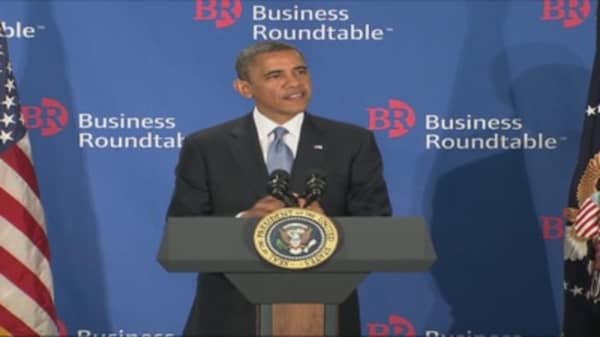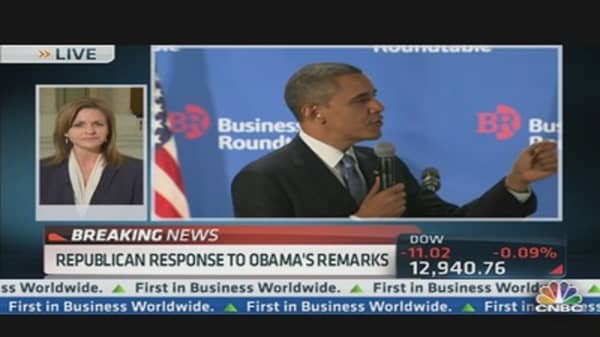President Barack Obama told business leaders Wednesday a deal on the "fiscal cliff" could be reached in a week if Republicans accepted the idea of higher tax rates on the wealthy.
"We're not insisting on rates out of spite, but rather we need to raise a certain amount of revenue," Obama told the Business Roundtable, an association representing chief executives of large U.S.firms.
"Among some Republicans over the last several days, I think there's been some recognition they can accept some rate increases as long as it's combined with serious entitlement reform and additional spending cut," Obama said.
"If we can get the Republican leadership to accept that framework, then the numbers actually aren't that far apart."
"Another way of putting this: We can probably solve this in about a week," Obama added. "It's not that tough."
Shortly before he spoke, however, Republicans said the talks were deadlocked, and they demanded a meeting with the president to move the negotiations forward.





